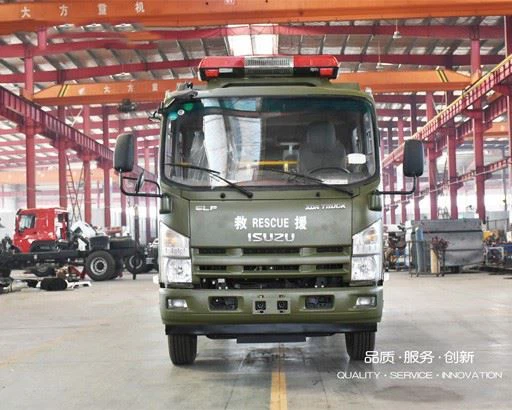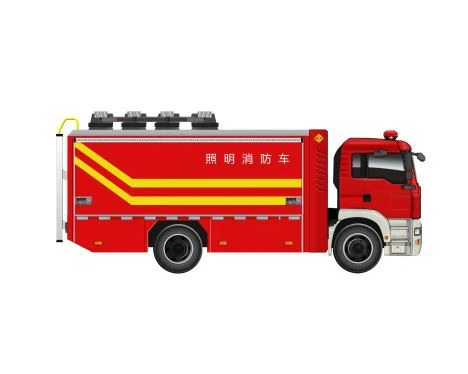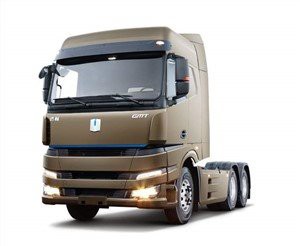Exploring the 18-Wheeler Cabin Interior: Comfort, Functionality, and Style

The cabin interior of an 18-wheeler plays a crucial role in the driving experience for truckers. These trucks are not just vehicles; they serve as mobile homes for drivers who spend long hours on the road. Understanding the components, design, and features of an 18-wheeler cabin interior can enhance comfort and improve overall efficiency. In this article, we will delve deep into the various elements that make up an 18-wheeler cabin interior and offer practical tips for optimizing your space.
The Importance of a Well-Designed Cabin Interior
For long-haul truckers, the cabin interior must provide comfort, functionality, and safety. It acts as an office and a living space, making its design critical. A well-designed cabin can reduce fatigue, enhance focus, and improve overall well-being while on the road.
Comfort and Ergonomics
A comfortable driving environment can help mitigate fatigue. An ergonomic cabin design includes adjustable seats, adequate legroom, and intuitive controls.
Adjustable Seats
Seats in an 18-wheeler should have various adjustments, including height, tilt, and lumbar support. Investing in high-quality seats can improve posture during long drives.
Climate Control
Effective climate control systems allow drivers to maintain a comfortable temperature, regardless of external weather conditions. This feature is vital for ensuring driver comfort and preventing fatigue.
Essential Components of an 18-Wheeler Cabin Interior
The cabin interior comprises multiple components that enhance the driving experience. Understanding each part can help owners or drivers better utilize the space.
Dashboard and Instrument Panel
The dashboard is the nerve center of the 18-wheeler, displaying essential information at a glance. Key features typically include:
- Speedometer
- Fuel gauge
- Temperature gauge
- Tachometer
- Warning indicators

Technology Integration
Modern 18-wheelers come equipped with advanced technology, such as navigation systems, Bluetooth connectivity, and entertainment options. This integration can enhance convenience while on the road.
Storage Solutions

Storage is a key factor in cabin design. A well-organized space contributes to efficiency and comfort.
Cabinetry and Compartments
Many trucks feature cabinetry above the driver’s seat and compartments under the bunk for items such as clothing, food, and tools. Organizing these areas smartly can help create a clutter-free environment.
Under-Bed Storage
| Storage Type | Purpose |
|---|---|
| Plastic Bins | Storing food supplies |
| Toolboxes | Storing repair tools and equipment |
| Coolers | Keeping perishables |
Creating a Home Away from Home
Long-haul truckers often spend nights in their trucks. Making the cabin feel more like home can greatly enhance comfort.
Quality Bedding and Sleep Solutions
Investing in a high-quality mattress and bedding can make a significant difference in sleep quality. Look for:
- Memory foam mattresses
- Comfortable pillows
- Good-quality sheets
Personal Touches
Adding personal decor items like photos, curtains, and small plants can improve the ambiance of the cabin. These details help create a sense of familiarity and comfort.
Safety Features in the Cabin Interior
Safety is paramount in driving. A well-designed cabin can include numerous safety features to protect the driver.
Seat Belts and Safety Systems
Modern cabins often feature advanced safety systems such as:
- Airbags
- Collision prevention systems
- Electronic stability control
Visibility Enhancements
Large windows and effective mirrors are critical for visibility. Many cabins also include:
- Blind spot cameras
- Heated mirrors
Maintenance and Care for the Cabin Interior
Regular maintenance of the cabin interior can prolong its life and keep it looking great.
Cleaning Tips
Keeping the cabin clean is essential for hygiene and comfort. Here are some practical tips:
- Use vacuum cleaners to remove debris.
- Wipe surfaces regularly with appropriate cleaners.
- Remove trash daily to prevent build-up.
Inspecting Key Components
Regularly check important aspects such as:
- Seat belts and buckles
- Electrical systems
- Air filters
Customizing Your 18-Wheeler Cabin Interior

Many drivers choose to modify their cabin interiors to suit personal tastes and needs. Here are some popular customization ideas.
Aftermarket Accessories
There are various accessories available that can enhance the cabin’s functionality and aesthetics, including:
- Custom floor mats
- Enhanced lighting kits
- Navigation and infotainment upgrades
Choosing Colors and Materials
Personalization can extend to the materials and colors used in the cabin. Options include synthetic leather, upholstery fabrics, and various finishes for the dashboard.
Tips for New Drivers: Settling into Your Cabin Space
For new drivers, adjusting to life in an 18-wheeler can be challenging. Here are some tips to help ease the transition.
Organization Strategies
A well-organized cabin can save time and reduce stress. Some effective methods include:
- Labeling storage compartments
- Designating areas for specific items
Establish a Routine
Getting into a routine with meal prep, sleep, and breaks can make life on the road more manageable. A solid routine can lead to a more relaxed, productive driving experience.
Frequently Asked Questions
1. What are the essential features of an 18-wheeler cabin?
The essential features include a comfortable driver’s seat, climate control, a functioning dashboard with all necessary instruments, ample storage, and safety systems such as seat belts and airbags.
2. How can I improve comfort in my 18-wheeler cabin?
Upgrade to high-quality seating and bedding, maintain a suitable temperature with climate control, and personalize your space with home-style decor.
3. What’s the best way to keep the cabin clean?
Regular vacuuming, surface cleaning, and daily trash removal are essential. Additionally, consider a deep clean once a month to keep everything in top shape.
4. Are there any recommended storage solutions for an 18-wheeler cabin?
Using plastic bins, toolboxes, and coolers under the bed can optimize storage. Additionally, utilize vertical space with cabinets and hanging organizers.
5. How can new drivers adapt to cabin living?
Establishing a routine, organizing storage areas, and personalizing the space can help new drivers adjust to life inside an 18-wheeler.
6. What are some common customization options for 18-wheeler cabins?
Common customization options include installing aftermarket accessories, changing colors and materials of upholstery, and enhancing the tech setup with navigation and infotainment systems.
